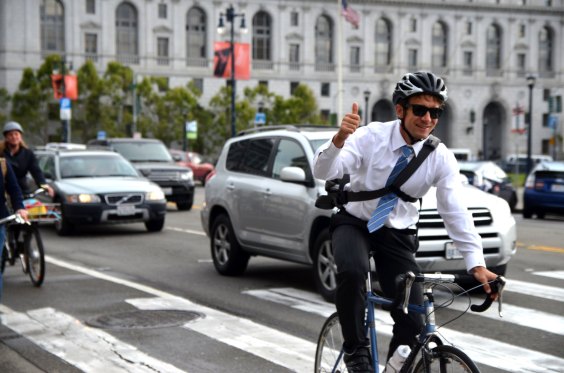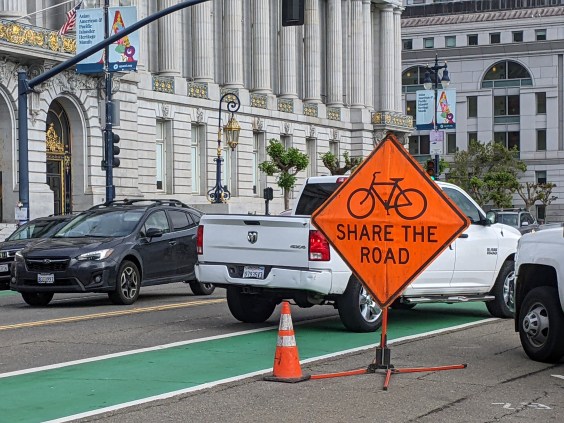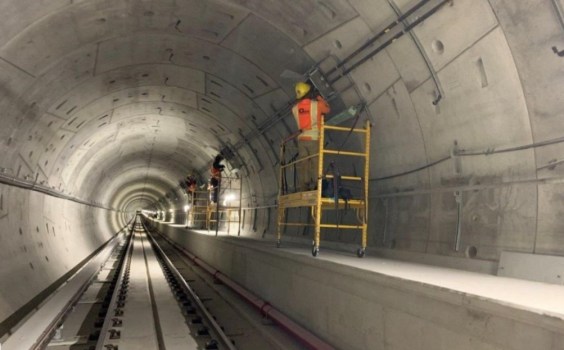The humble zoning code may be the most important tool that sustainable transportation advocates can wield in the fight to end car dependence ... if they can make heads or tails of their communities' hundreds of pages of local laws. But what if any American could tell at a glance how her unique local land-use policies influence the way she and her neighbors get around, without having to dig through a mountain of arcane jargon to get there?
Today on The Brake, we're talking to Sara Bronin, law professor at Cornell University and the mastermind behind the National Zoning Atlas, a collaborative effort to uncomplicate the basic building blocks of land-use policy for more Americans — and help them see how other communities stack up.
We talk about why proponents of people-centered transportation can't afford to overlook zoning, how changing something as simple as a parking code can transform a community, and what bad land use policy can mean for the housing market in walkable neighborhoods (spoiler: death by a thousand cuts.)
Listen anywhere you get your podcasts, or check out a lightly edited excerpt from our conversation below.
Kea Wilson: Zoning is one of those things that is so important to almost all of our city policy goals. But it also kind of makes people's eyes glaze over. How did you get interested in this topic, and why should it matter to every sustainable transportation advocate?
Sara Bronin: Zoning dictates everything that can be built in the country. And most importantly, it tells us where we can live and how it tells us where we can put our shops and factories, and even in some cases governs the placement of roads and their design.
So for sustainable transportation advocates, zoning is critical to your cause. Because unless zoning makes dense in walkable places, you won't have the density that you need to develop mass transportation systems. Unless zoning allows for roads to be charming narrows, street-tree-lined roads, you won't have the kind of quality street experience that you probably want. Unless zoning does away with minimum parking requirements, you will have a car-dominated city, and unless zoning has minimum lot sizes that are very small or non-existent, you will have large-lot sprawl that makes it impossible for you to build to justify investments in bike lanes and other active transportation infrastructure.
Land use and transportation are really intricately interlinked. And you really should be aware of zoning in your town as you advocate for more sustainable transportation policies, because it plays a huge role in whether those policies succeed.
Wilson: Why do you think more sustainable transportation advocates don't talk about zoning already?
Bronin: I think it's that zoning codes are so difficult to understand and engage with that most people just throw up their hands. We ignore them, and don't see them as a critical tool to enable more sustainable transportation practices. It's such a barrier to good policymaking, when the policy is written in such a way that an ordinary person can't make heads or tails of it.
So one of the goals of our Connecticut zoning atlas — and the New York zoning atlas, and Ohio, Montana, Hawaii, all the other states that have have gotten on board with our project — is to help clarify what those zoning rules mean. And to help to pave the way for the data to guide good policymaking changes.
And so I encourage anybody who's listening who's involved with a local planning agency, or who wants to start a zoning atlas project to get involved. We're online at zoningatlas.org, you can find more information about the methodology, more information about the why you can find a paper on the findings of the Connecticut zoning atlas. And hopefully that might start conversations in your locality that might lead to a statewide zoning atlas that you can then use, like we have in Connecticut, to achieve sustainable transportation advocacy goals.





